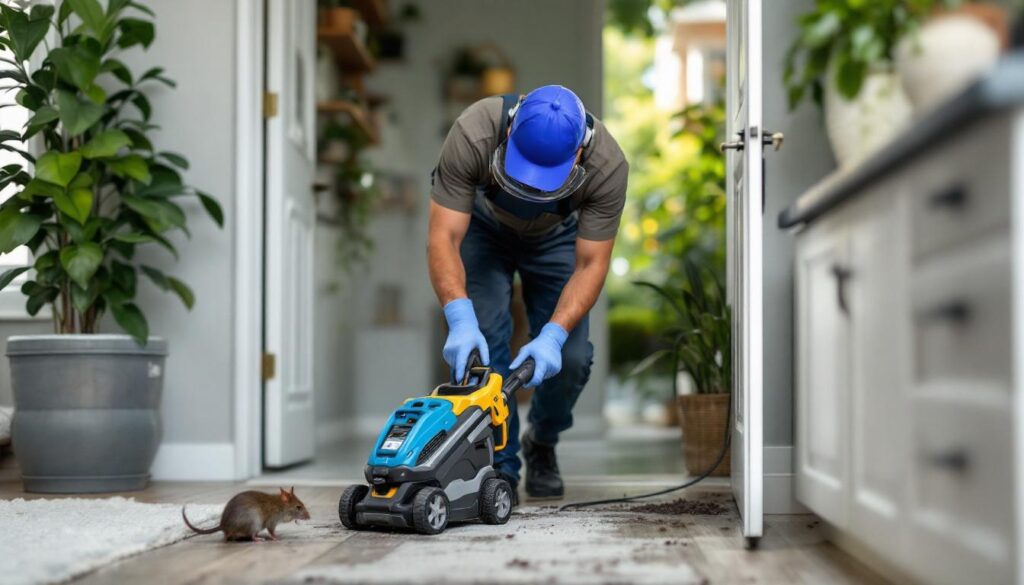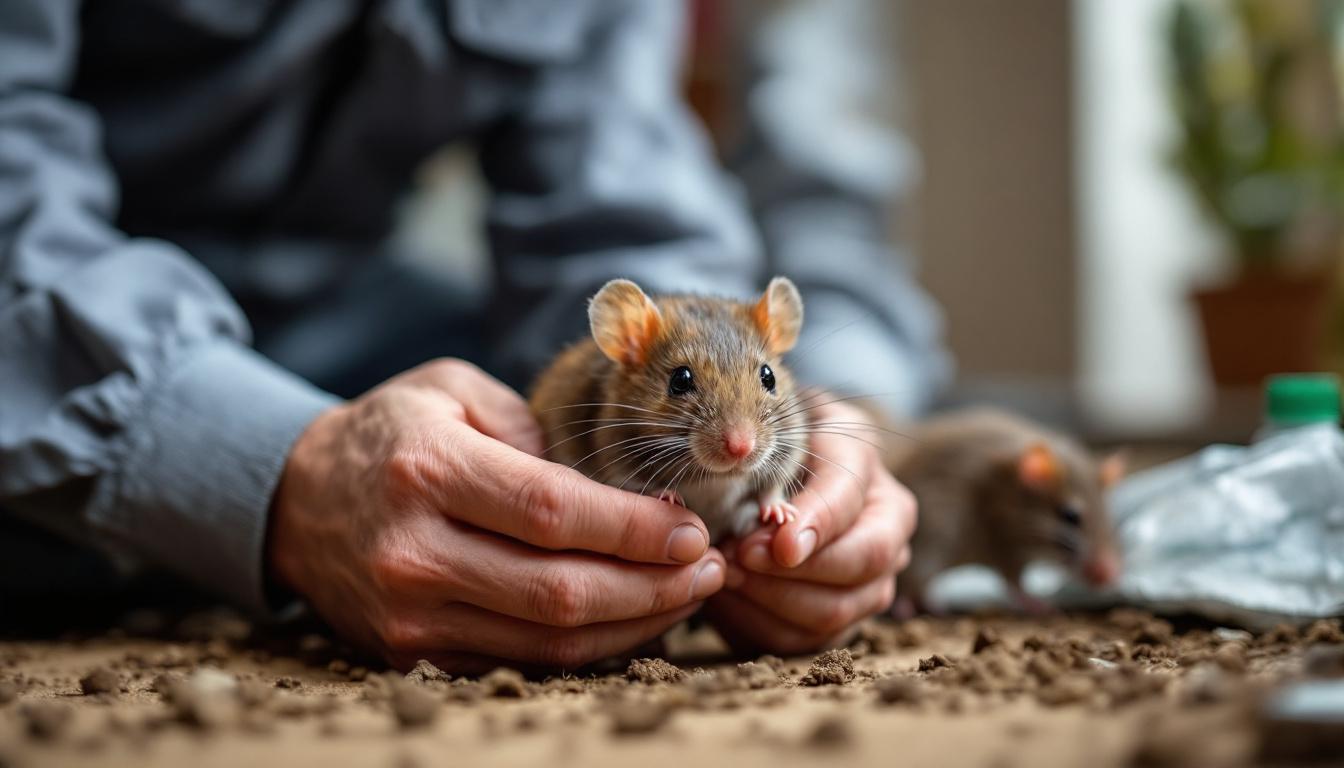Rodents can be a significant nuisance in urban environments, particularly in a bustling city like Sydney. With its unique climate and urban landscape, Sydney presents both challenges and opportunities for effective rodent treatment. Understanding the nature of rodent infestations, the methods available for treatment, and preventative measures is essential for homeowners and businesses alike. This comprehensive guide will delve into everything you need to know about rodent treatment in Sydney, ensuring you are well-equipped to tackle any rodent-related issues.
Understanding Rodent Infestations
Rodents, including rats and mice, are highly adaptable creatures that can thrive in various environments. In rodent treatment Sydney, the most common species include the black rat, brown rat, and house mouse. Each species has its own behaviour patterns, nesting habits, and food preferences, which can affect how infestations occur and how they can be treated.
Common Signs of Rodent Infestation
Identifying a rodent infestation early is crucial for effective treatment. Common signs include:
- Droppings: Small, dark pellets found in areas where rodents frequent.
- Gnaw Marks: Signs of chewing on food packaging, furniture, or wires.
- Nests: Shredded materials like paper or fabric used to create nests.
- Footprints: Small tracks in dusty areas or soft surfaces.
Being vigilant and recognising these signs can help mitigate the problem before it escalates.
Why Rodents are a Problem
Rodents are not only a nuisance but also pose significant health risks. They can carry diseases such as leptospirosis, hantavirus, and salmonella, which can be transmitted to humans through direct contact or contaminated food and surfaces. Additionally, their gnawing habits can lead to structural damage in homes and businesses, potentially resulting in costly repairs.
Methods of Rodent Treatment
Effective rodent treatment requires a multifaceted approach. The methods employed can vary based on the severity of the infestation, the type of rodent, and the specific environment. Here are some of the most common treatment options available in Sydney.
Trapping
Trapping is one of the most humane and effective methods for controlling rodent populations. Various types of traps are available, including:
- Snap Traps: Quick and effective, these traps kill rodents instantly.
- Live Traps: These traps capture rodents alive, allowing for relocation.
- Glue Traps: These traps immobilise rodents but may not be considered humane.
When using traps, it is essential to place them in areas where rodent activity is evident, such as near droppings or gnaw marks. Regular monitoring and maintenance of traps are crucial for success.
Rodenticides
Rodenticides, or poison baits, are another common method for rodent control. These chemicals are designed to kill rodents after ingestion. However, caution is paramount when using rodenticides, especially in households with pets or children. There are two main types of rodenticides:
- Anticoagulants: These cause internal bleeding in rodents over several days.
- Acute Toxicants: These kill rodents quickly after ingestion.
It is advisable to consult with a pest control professional when considering the use of rodenticides to ensure safe and effective application.
Professional Pest Control Services
For severe infestations or when DIY methods prove ineffective, enlisting the help of professional pest control services is often the best course of action. These experts can conduct thorough inspections, identify the source of the infestation, and implement targeted treatment strategies. Additionally, they can provide valuable advice on long-term prevention measures. Click here to get more about reventing rodent infestations with expert mice removal in Sydney.
Preventative Measures
Prevention is always better than cure when it comes to rodent infestations. Implementing effective preventative measures can significantly reduce the likelihood of rodents entering your home or business. Here are some strategies to consider:
Sealing Entry Points
Rodents can squeeze through surprisingly small gaps, so it is essential to inspect your property for pcotential entry points. Common areas to check include:
- Cracks in walls and foundations
- Spaces around pipes and cables
- Gaps under doors and windows
Sealing these entry points with appropriate materials, such as caulk or steel wool, can help keep rodents at bay.
Maintaining Cleanliness
Keeping your environment clean is crucial in deterring rodents. Regularly cleaning up food spills, storing food in airtight containers, and disposing of rubbish properly can eliminate potential food sources for rodents. Additionally, maintaining a tidy garden and removing debris can reduce nesting sites.
Landscaping Considerations
Landscaping can also play a role in rodent prevention. Keeping shrubs and trees trimmed and away from the building can reduce hiding spots. Furthermore, ensuring that compost heaps are well-managed and not overly attractive to rodents can also be beneficial.

Legal and Ethical Considerations
When dealing with rodent treatment, it is essential to be aware of the legal and ethical considerations involved. In Australia, there are regulations governing the use of pesticides and traps, particularly concerning humane treatment. It is crucial to ensure that any methods employed comply with local laws and regulations.
Humane Treatment Options
For those concerned about animal welfare, there are humane treatment options available, such as live traps and exclusion methods. These approaches focus on capturing and relocating rodents rather than exterminating them. It is important to research and choose methods that align with your ethical beliefs while still effectively managing rodent populations.
Consulting Local Authorities
If you encounter a significant rodent problem, it may be worthwhile to consult local authorities or pest control organisations. They can provide guidance on best practices and may offer resources for managing rodent populations in a responsible manner.
Conclusion
Rodent treatment in Sydney requires a comprehensive understanding of the species involved, the methods available for control, and effective preventative measures. By recognising the signs of infestation early and employing a combination of trapping, rodenticides, and professional services, you can effectively manage rodent populations. Additionally, implementing preventative strategies can help ensure that your home or business remains rodent-free. Always consider the legal and ethical implications of your chosen methods, and do not hesitate to seek professional advice when needed. With the right approach, you can maintain a safe and healthy environment free from the threat of rodents.


